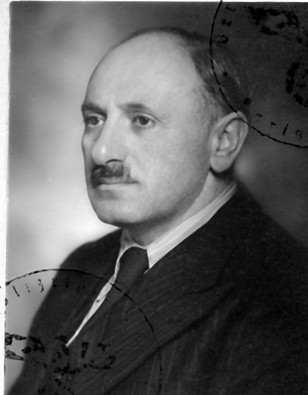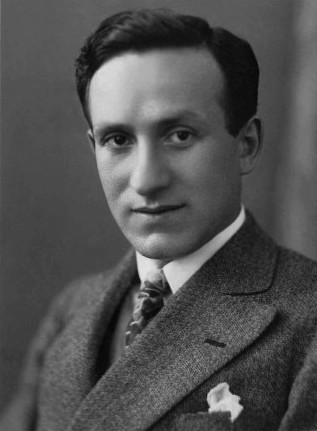Related Research Articles
A layoff or downsizing is the temporary suspension or permanent termination of employment of an employee or, more commonly, a group of employees for business reasons, such as personnel management or downsizing an organization. Originally, layoff referred exclusively to a temporary interruption in work, or employment but this has evolved to a permanent elimination of a position in both British and US English, requiring the addition of "temporary" to specify the original meaning of the word. A layoff is not to be confused with wrongful termination. Laid off workers or displaced workers are workers who have lost or left their jobs because their employer has closed or moved, there was insufficient work for them to do, or their position or shift was abolished. Downsizing in a company is defined to involve the reduction of employees in a workforce. Downsizing in companies became a popular practice in the 1980s and early 1990s as it was seen as a way to deliver better shareholder value as it helps to reduce the costs of employers. Research on downsizing in the US, UK, and Japan suggests that downsizing is being regarded by management as one of the preferred routes to help declining organizations, cutting unnecessary costs, and improve organizational performance. Usually a layoff occurs as a cost-cutting measure. A study of 391 downsizing announcements of the S&P 100 firms for the period 1990-2006 found, that layoff announcements resulted in substantial increase in the companies’ stock prices, and that the gain was larger, when the company had prior layoffs. The authors suggested, that the stock price manipulation alone creates a sufficient motivation for publicly-traded corporations to adopt the practice of regular layoffs.

SC Hakoah Vienna is a Jewish sports club in Vienna, Austria.
Józef Klotz was a Jewish Polish footballer who played centre-half. He scored the first-ever goal for the Poland national football team. He was killed by the Nazis in the Warsaw Ghetto in 1941.

Gyula Mándi, also referred to as Mándi Gyula or Julius Mandel was a Hungarian Olympic national team and club footballer, who played as a defender and fullback/ He was also a manager of club and national teams. He was Jewish.

Julius Hirsch was a Jewish German Olympian international footballer who was murdered at Auschwitz concentration camp during the Holocaust. He helped the Karlsruher FV win the 1910 German football championship, and also played for the Germany national football team, including at the 1912 Summer Olympics. He then joined SpVgg Fürth, with whom he won the 1914 German football championship.

Leon Sperling was a Polish Olympic footballer.

Ernő Egri Erbstein, also known as Ernest and Ernesto Erbstein, was a Hungarian football player and manager. He carried out his footballing activities in several countries, and was most noted for his association with Italian football.

József Braun was a Hungarian Olympic footballer who played as a half back. Braun began his career in Hungary before finishing it in the American Soccer League. He earned 27 caps, scoring 11 goals, with the Hungary national team. After retiring from playing, he coached for several years. Braun was killed in 1943 in a Nazi forced labor camp.

The Friedman doctrine, also called shareholder theory, is a normative theory of business ethics advanced by economist Milton Friedman which holds that the social responsibility of business is to increase its profits. This shareholder primacy approach views shareholders as the economic engine of the organization and the only group to which the firm is socially responsible. As such, the goal of the firm is to increase its profits and maximize returns to shareholders. Friedman argues that the shareholders can then decide for themselves what social initiatives to take part in, rather than have an executive whom the shareholders appointed explicitly for business purposes decide such matters for them.

Árpád Weisz was a Hungarian Olympic football player and manager. Weisz was Jewish, and was murdered with his wife and children by the Nazis during the Holocaust in World War II at Auschwitz.
Economics of participation is an umbrella term spanning the economic analysis of worker cooperatives, labor-managed firms, profit sharing, gain sharing, employee ownership, employee stock ownership plans, works councils, codetermination, and other mechanisms which employees use to participate in their firm's decision making and financial results.
Béla Sebestyén was a Hungarian international footballer who played as a winger. Sebestyén was Jewish. He played club football for MTK. He also represented his country at international level, earning 24 caps between 1906 and 1912, and appearing at the 1912 Summer Olympics. He later coached MTK.He won one national championship and two national cup titles. Between 1906 and 1912 he played 24 matches with the Hungary national team and scored two goals. Sebestyén was a member of the 1912 Hungarian Olympic team. On the national team, together with Sándor Bodnár, he was one of the best right wings in Europe. Sebestyén finished his football career relatively early, at the age of 28, after a serious injury.

Ferenc Weisz was a Hungarian football player and manager. Weisz, who was Jewish, played club football as a striker for Ferencváros and MTK, winning the Hungarian league nine times. He also represented his country at international level, earning 17 caps between 1903 and 1917. After retiring as a player in 1920, Weisz became manager of Újpest between 1920 and 1922.
Béla Guttmann was a Hungarian footballer and coach. He was born in Budapest, Austria-Hungary, and was Jewish. He was deported by the Nazis to a Nazi slave labor camp where he was tortured; he survived the Holocaust.

Antal Vágó , Weiss was a Hungarian international footballer who played as a midfielder. Vágó, who was Jewish, played club football for MTK, playing midfield for 12 seasons and winning the league nine time, and Fővárosi TC. He also represented Hungary national team at international level, earning 17 caps between 1908 and 1917. He also competed at the 1912 Summer Olympics.
Economic democracy is a socioeconomic philosophy that proposes to shift ownership and decision-making power from corporate shareholders and corporate managers to a larger group of public stakeholders that includes workers, consumers, suppliers, communities and the broader public. No single definition or approach encompasses economic democracy, but most proponents claim that modern property relations externalize costs, subordinate the general well-being to private profit and deny the polity a democratic voice in economic policy decisions. In addition to these moral concerns, economic democracy makes practical claims, such as that it can compensate for capitalism's inherent effective demand gap.
While psychopaths typically represent a very small percentage of workplace staff, the presence of psychopathy in the workplace, especially within senior management, can do enormous damage. Indeed, psychopaths are usually most present at higher levels of corporate structure, and their actions often cause a ripple effect throughout an organization, setting the tone for an entire corporate culture. Examples of detrimental effects include increased bullying, conflict, stress, staff turnover, absenteeism, and reduction in both productivity and social responsibility. Ethical standards of entire organisations can be badly damaged if a corporate psychopath is in charge. A 2017 UK study found that companies with leaders who show "psychopathic characteristics" destroy shareholder value, tending to have poor future returns on equity.
LRN, founded in 1994, is an American company which provides advising and educating on ethics, regulatory compliance, and corporate culture to other organizations. When founded, the company focused on the legal industry and was named Legal Research Network, before expanding into other fields.
Max Scheuer was an Austrian international footballer who played the defender position. He played for the Austria national football team in the 1923 season. In the 1920s he played for and captained Hakoah Vienna. He was murdered in the Auschwitz concentration camp.
Dr. Akiba Eisenberg was a former Chief Rabbi of Vienna.
References
- ↑ "David Bolchover – Author, commentator and business writer" . Retrieved 14 April 2021.
- ↑ "Béla Guttmann book makes William Hill shortlist". www.thejc.com. Retrieved 14 April 2021.
- ↑ "The myth of 'talent'". MoneyWeek. 26 January 2010. Retrieved 14 April 2021.
- ↑ Bolchover, David. "The City bonus bonanza is bad for capitalism". The Times . ISSN 0140-0460 . Retrieved 14 April 2021.
- ↑ "Bursting a balloon". The Economist. 21 April 2010. ISSN 0013-0613 . Retrieved 14 April 2021.
- ↑ Richards, Huw. "The Greatest Comeback: From genocide to football glory by David Bolcho". When Saturday Comes. Retrieved 14 April 2021.
- ↑ "Remembering the cream of Jewish footballing talent killed in the Holocaust". the Guardian. 6 May 2019. Retrieved 14 April 2021.
- ↑ "The truth about work: Where sport is, business will follow". www.telegraph.co.uk. 16 January 2006. Retrieved 14 April 2021.
- ↑ "The Living Dead Free Summary by David Bolchover". getAbstract. Retrieved 14 April 2021.